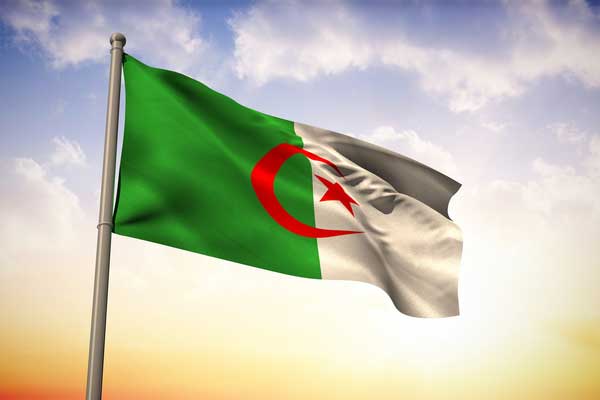Algeria, a symbolic country of revolution against colonialism. It is a North African land that has been a beacon for many cultures and free people throughout history. Colonialism has left devastating marks on this society, and millions of Algerians both inside and outside the country celebrate freedom yearly. They call these celebrations Victory Day and experience the rightful joy of self-rule.

Not too far back in history, let’s go back to the era of independence in 1954. Intense conflicts erupted between Muslim Arabs and pro-European people in the country. The people were divided, leading to a civil war lasting eight years. In this struggle, two million Algerians were displaced from their homes, and 250,000 people lost their lives for the cause. Finally, in 1962, Algeria became fully independent and dealt a heavy blow to French colonialism. Thus, a great revolution was made in this vast country. New anthems were written as the people gained their freedom. This is Algeria.
Algeria is a Diverse Land With a Relatively Small Population
Algeria is the largest country in Africa. It has an incredible land area of 2,381,740 square kilometers, larger than Libya. However, Algeria’s population is relatively modest for its vast size, with only 45 million people. The country offers valleys, clean beaches along the Mediterranean, deserts, and even snowfalls. Its diverse geography appeals to all tastes, along with the historical cities and delicious food.
Algerians Warmly Welcome Visitors
Algiers, Algeria’s capital sharing its name, lies on the coast, the heart of the country. Life flows in this city, and outsiders are warmly welcomed. You will hear “Welcome to Algeria!” from everyone, with sincerity and warmth. Algerians are sincere and open-hearted, especially toward outsiders from the Arab community or places like Palestine.
They know similar situations happened to Algeria 60 years ago, so the sincerity increases. The older generation holds tradition and history dear. Their views focus on Eastern culture more than younger generations, who have a more positive attitude toward the West.
Algeria’s Arab and North African Blend
Algeria blends Arab culture, with over 90% Muslim population. In Algiers, see the Great Mosque, the largest in Africa. Its excellent new craftsmanship makes it Africa’s largest and the world’s third-largest mosque. Every airplane passenger landing in Algiers sees this magnificent mosque first.
The mosque carries a message, replacing a French church formerly imposed on Algerians. The mosque has a library, conference halls, and a restaurant. Visit the 43rd floor minaret overlooking Algiers.
Delicious Algerian Food Reflects Diverse Influences
Countries like Algeria where empires ruled leave a mark on food. Dishes blend Turkish, Arab, and Western influences. Famous is the “liver king” shop with Algeria’s best liver. Sahara tea, a dessert tea common in North Africa, is a must-try. Algerians closely connect with conversation and hospitality.
Revolutionary History Remains Vital
Revolutionary slogans and symbols remain, like the flag’s star and crescent for Islam, white for independence, and green for revolution. However, prosperity remains elusive. Despite oil wealth, Algeria lacks development. The metro opened only ten years ago. Internet lags behind despite low costs. Locals protest the government holds wealth while most Algerians struggle.
Algeria Offers Beautiful, Diverse Landscapes
Algeria contains diverse beautiful landscapes. Mountain roads make you feel like you’re in the Swiss Alps, not the desert. Yellow hills give way to green valleys and snowy peaks, like another country. Crea’s mountains are even more beautiful than Switzerland, Algerians passionately say.
Constantine, the “ancient rock city,” is carved from stone cliffs with caves and tunnels. Suspension bridges connect rock passages. Constantine has been a gathering place for scholars since Roman times. It seems like a film set more than a city.
Lively Cultural Traditions Endure
Cultural traditions persist, like weddings accompanied by a horseman firing celebratory rifle shots. People embrace heritage like 2,000-year-old Roman ruins. Yet despite gaining independence in 1962, lasting stability eludes Algeria. Prosperity is lacking, and young people dream of living in France. True democracy appears lacking as politicians monopolize power. But Algeria’s diverse lands await to reward visitors.
